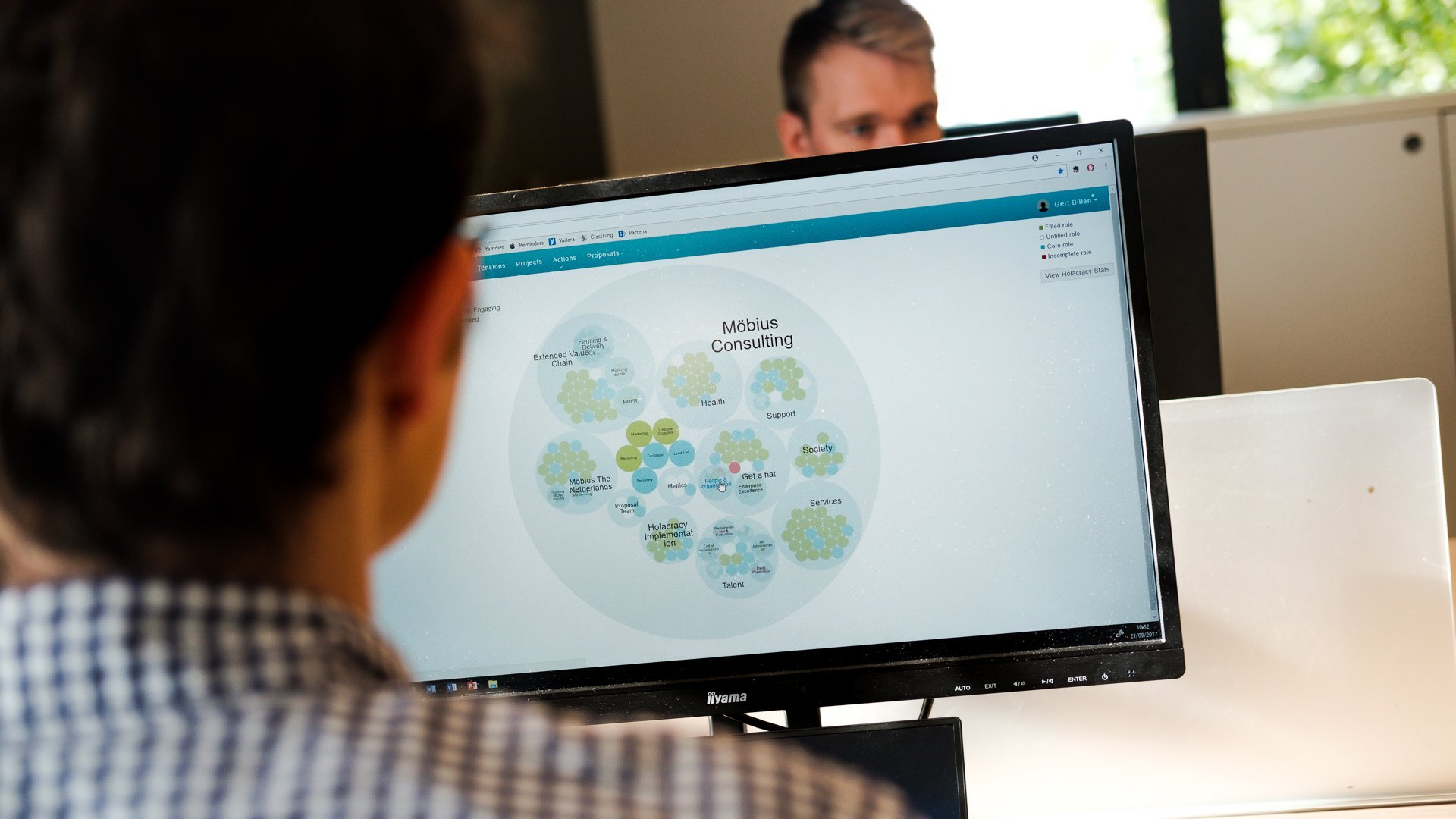Have you – while working in your current or former company – ever noticed an opportunity to improve the way work is organized? Or perhaps you have had some ideas on a better way to organise the strategy, processes or company structure? Or maybe you have seen ways to solve the daily challenges that hinder the company? It is hard to believe that this has never happened to you or your colleagues. Yet what can the average employee do to develop such ideas, ideas that could help the company to progress? The answer is usually “very little”. Unless you are at the top of the company you often have little say in the company’s structure, strategy, processes, or management.
But what a missed opportunity this is… We people have an amazing ability to spot opportunities and come up with ideas for improvement, but generally we do not have a forum in our own company that we can rely on to transform these ideas into something useful. This means that companies lose out on one of their biggest potential strengths for progress. Wouldn’t it be fantastic if every employee had easy access to a forum to transform all kinds of ideas on improvement into specific action?
Have you every sat in a long and painful meeting, whose sole purpose was to create buy-in for someone’s idea or to convince you of a colleague’s idea? It is hard to believe you haven’t. After all, a study carried out by Bain & Company revealed that an average of 15% of all working hours in an organisation were spent in a meeting. For managers this even reaches as much as 50% of their working hours. Wouldn’t it then be fantastic to give employees the (structured) autonomy to make their own decisions, without first having to reach a consensus during a long meeting? Wouldn’t it also be fantastic for the remaining meetings to be run according to a tight and streamlined process to reduce the meeting time even more?
When was your job description last updated? When was the last time you reached for your job description to know what to focus on in a particular week? It is hard to imagine that you did this recently. Wouldn’t it be fantastic to use a dynamic system, in which the goals and expectations of every role within the organization were updated frequently to suit the rapidly changing environment, and that these were truly consulted?
Do you recognise some of these situations? Well you are not alone: we also face these kinds of issues at Möbius. We went looking for a manageable way of organising our internal process. During our search we became incredibly inspired by Holacracy: a new model for structuring an organization, invented by Brian Robertson. In fact we became so inspired that we decided to apply the Holacracy principle within our own organisation.
With Holacracy comes speed, clarity and autonomy, thanks to the fact that certain “game rules” are established. By following Holacracy’s game rules employees gain a better understanding of their goals and what is expected of them, as their job description is checked regularly and updated dynamically. Any modifications and additions to job descriptions are driven by improvement opportunities identified by the employees themselves.
There is a forum to manage obstacles preventing us from achieving our objectives. Meetings are no longer required to reach a consensus, because employees decide for themselves how best to achieve their job objectives. Indeed, every job has its own “property” or domain, within which it is possible to take autonomous decisions. And the best thing about Holacracy? That has to be the fact that the organisational structure evolves: week after week we continue improving our organisational process to suit our environment, which changes ever faster, together with the new challenges that keep emerging.
Want to know about our experience with Holacracy and other innovative organizational models and principles? Then feel free to get in touch: the person explicitly expected to fulfil this particular role of helping you will be delighted to tell you more!
Now, take a break and watch Holacracy Guru Brian Robertson:







.png?width=410&height=220&name=employer-experience-zorg-sector-unie-k%20(1).png)

